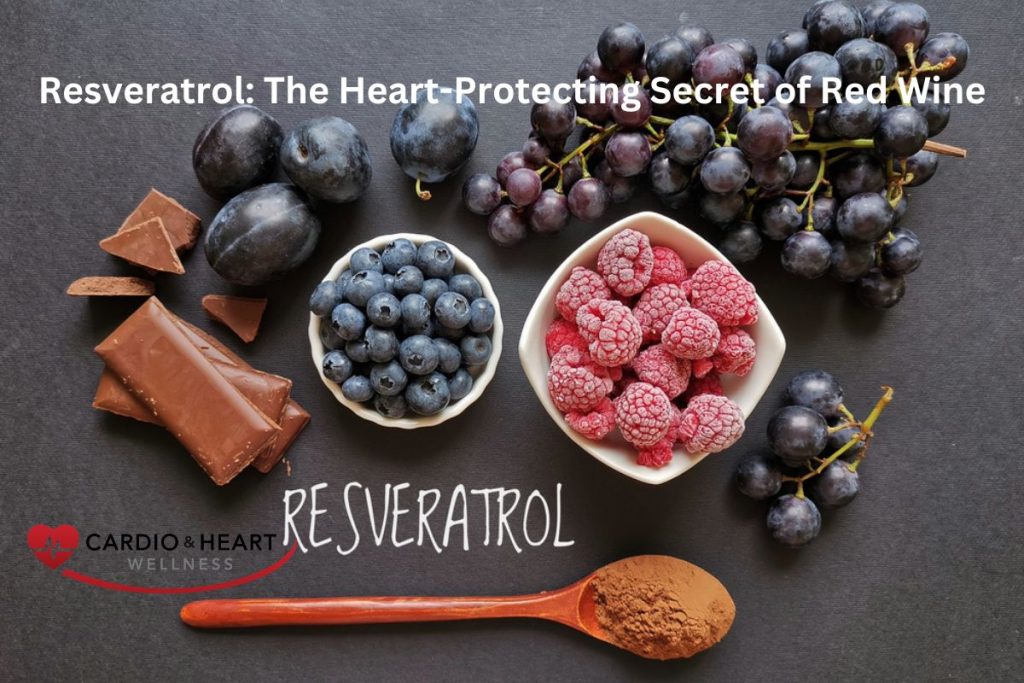
When discussing heart health, it’s impossible not to mention the curious case of the “French paradox.” The French, despite consuming a diet rich in saturated fats, have a remarkably low incidence of coronary heart disease. Researchers and experts have puzzled over this seeming contradiction for years, and one of the most significant clues to this mystery lies in a glass of red wine. Meet Resveratrol, the antioxidant powerhouse that has garnered much attention for its potential heart-protective properties.
Understanding Resveratrol
Resveratrol is a polyphenol – a type of natural compound found in plants. It primarily exists in the skins of red grapes, which, consequently, is the reason for its abundance in red wine. But how exactly is it connected to heart wellness?
The French Paradox
As mentioned in the snippet from Cardio & Heart Wellness, Resveratrol is often linked to the “French paradox.” While correlation doesn’t imply causation, many scientists believe that Resveratrol’s presence in red wine might play a significant role in the impressive cardiovascular health enjoyed by regular red wine drinkers in France.
The Antioxidant Effect
At its core, Resveratrol is a potent antioxidant. But what does this mean for the heart? Oxidative stress is a leading culprit behind many heart-related conditions. It arises when there’s an imbalance between the production of free radicals and the body’s ability to counteract their harmful effects.
Resveratrol’s role is particularly intriguing here. Not only is it a powerful antioxidant in itself, but it also seems to provide targeted protection for the vascular system. Its action appears to be even more focused and effective than many mixed antioxidant vitamin cocktails available in the market. This specificity ensures that vessels, particularly those vulnerable to free radical damage from substances like arginine, are shielded and maintained in good health.
Additional Benefits of Resveratrol
Beyond its antioxidant capabilities, research suggests that Resveratrol might offer other cardiovascular benefits:
- Anti-inflammatory properties: Chronic inflammation is increasingly being recognized as a risk factor for various heart conditions. Resveratrol, with its anti-inflammatory properties, can potentially mitigate this risk.
- Improving blood flow: Some studies hint at Resveratrol’s ability to enhance blood flow by promoting the dilation of blood vessels.
- Reducing LDL cholesterol: The “bad” cholesterol, when oxidized, can lead to plaque buildup in arteries. Resveratrol may help prevent the oxidation of LDL cholesterol, thereby reducing the risk of blockages.
In Conclusion
Resveratrol is undeniably a promising compound in the world of heart health. Its presence in red wine offers a delightful, though moderate, way to potentially protect our hearts. However, it’s crucial to remember that moderation is key. Overconsumption of alcohol can lead to other health issues.
If you’re considering adding Resveratrol supplements to your routine, always consult with a healthcare professional. The journey to heart wellness is multi-faceted, and while Resveratrol might be a piece of the puzzle, it’s essential to approach health holistically.


